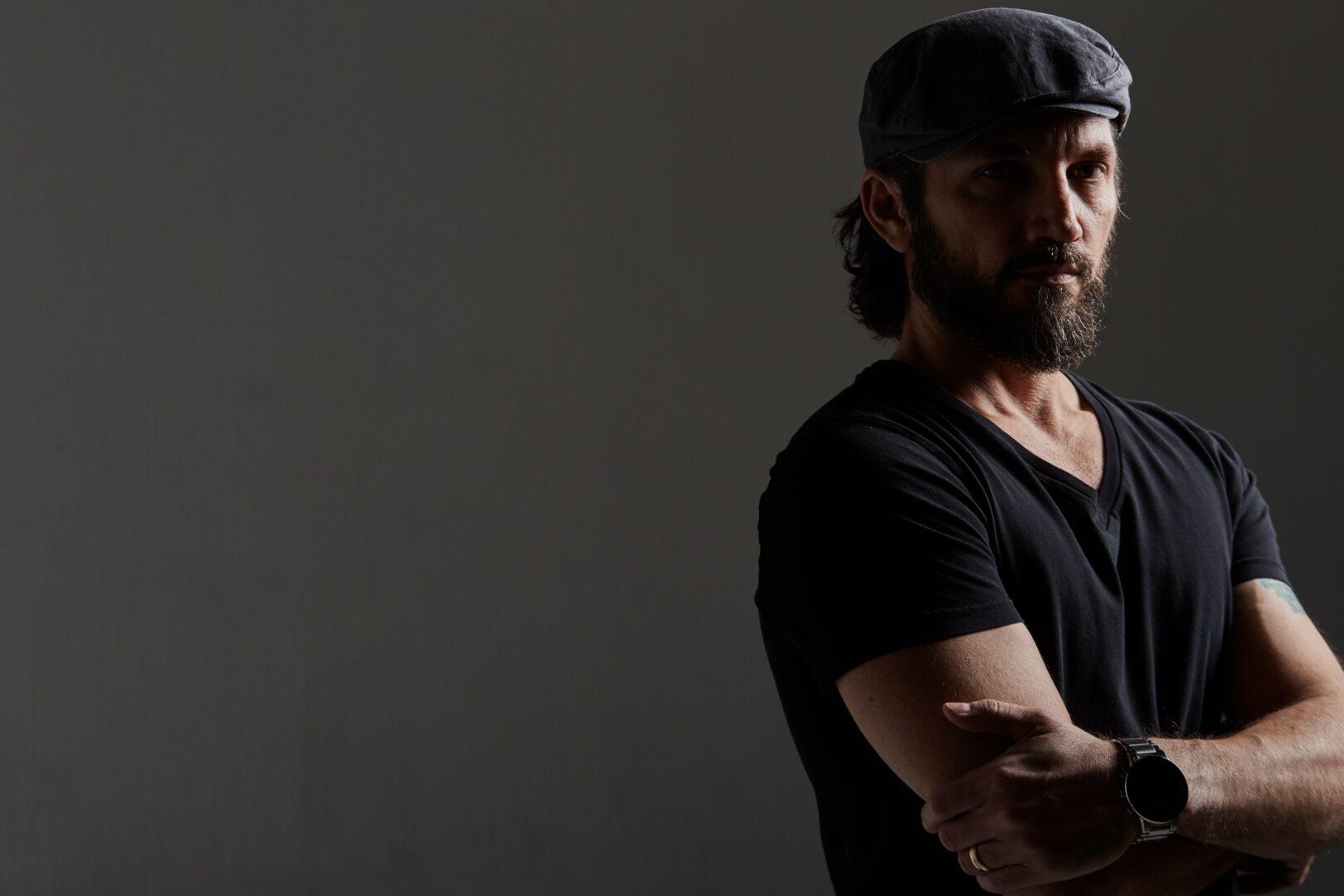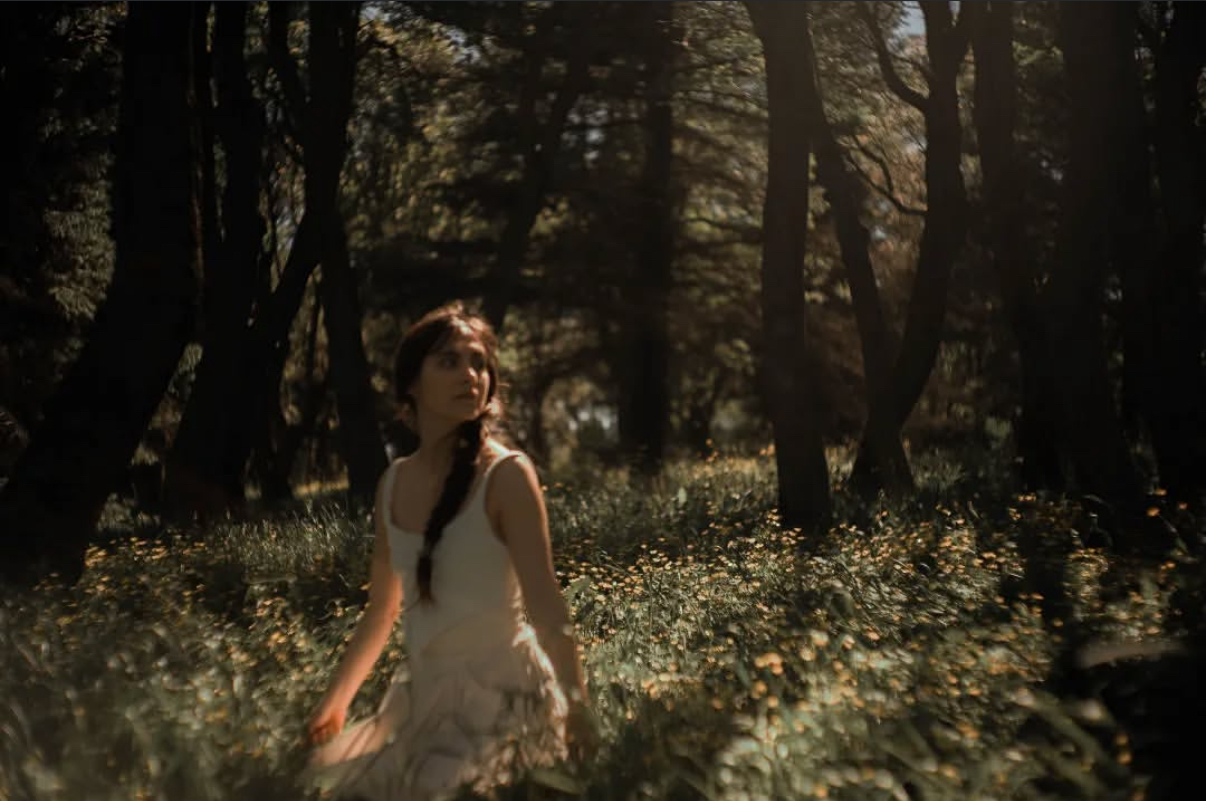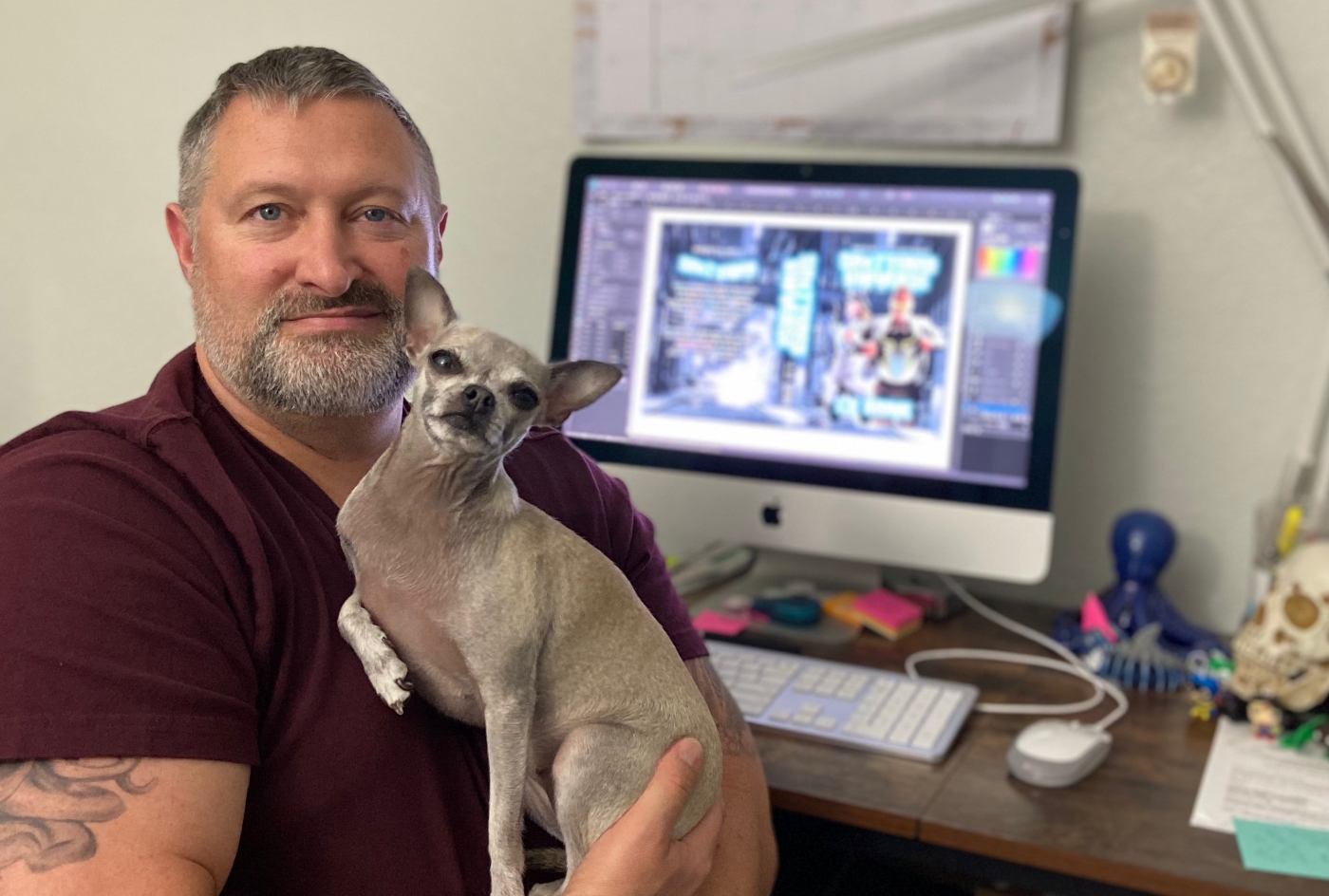We were lucky to catch up with Andrew Palermo recently and have shared our conversation below.
Andrew, sincerely appreciate your selflessness in agreeing to discuss your mental health journey and how you overcame and persisted despite the challenges. Please share with our readers how you overcame. For readers, please note this is not medical advice, we are not doctors, you should always consult professionals for advice and that this is merely one person sharing their story and experience.
For most of my life, I thought I was just a “glass half empty” kind of person. Sensitive. Intense. Moody. But in the final year of my marriage—when it was unraveling in real time—I was diagnosed with Major Depressive Disorder. I was 44. And honestly? I was relieved. It felt like someone had finally handed me the missing piece of a puzzle I’d been furiously trying to solve with the wrong picture on the box.
Six months after that diagnosis, my wife left, and I did all the things you do post-tragedy: read all the books, do all the journaling, drink all the alcohol. After a while—tired of hearing myself talk about the same damn thing over and over—I started doodling on my iPad as a way to calm my nervous system. No plan. No pressure. Just stylus-to-screen therapy.
A few months later, I found myself in Moscow in the dead of winter, creating an evening-length ballet for a 65-member dance company. ‘Let Go’ is an abstract meditation on divorce. And there I was—falling apart privately while building a massive piece of art publicly.
In the middle of rehearsals, my brother texted: “If you want to see Dad before he goes, you need to get on the next plane.” I did. I made it. I spent a few final days with him. He hung on longer than we thought, and I had to return to Moscow. Back in the theatre, during our first full run-through, the finale music—“Let Go” by Son Lux—was soaring through the space, dancers flying across the stage… and I got the text: “Dad’s gone.”
Two weeks later, I came home. I picked up an actual paintbrush. And I made my first painting.
Mental health is not a mountain I’ve summited. It’s terrain I walk every day. Sometimes with ease. Sometimes on my knees. But creativity—honest, unfiltered, messy-as-hell creativity—has been the way I keep moving. Whether it’s painting, dance, theatre, or teaching, it’s not about making something perfect. It’s about staying present. Staying human. Staying open.
And above all, it’s about letting go.
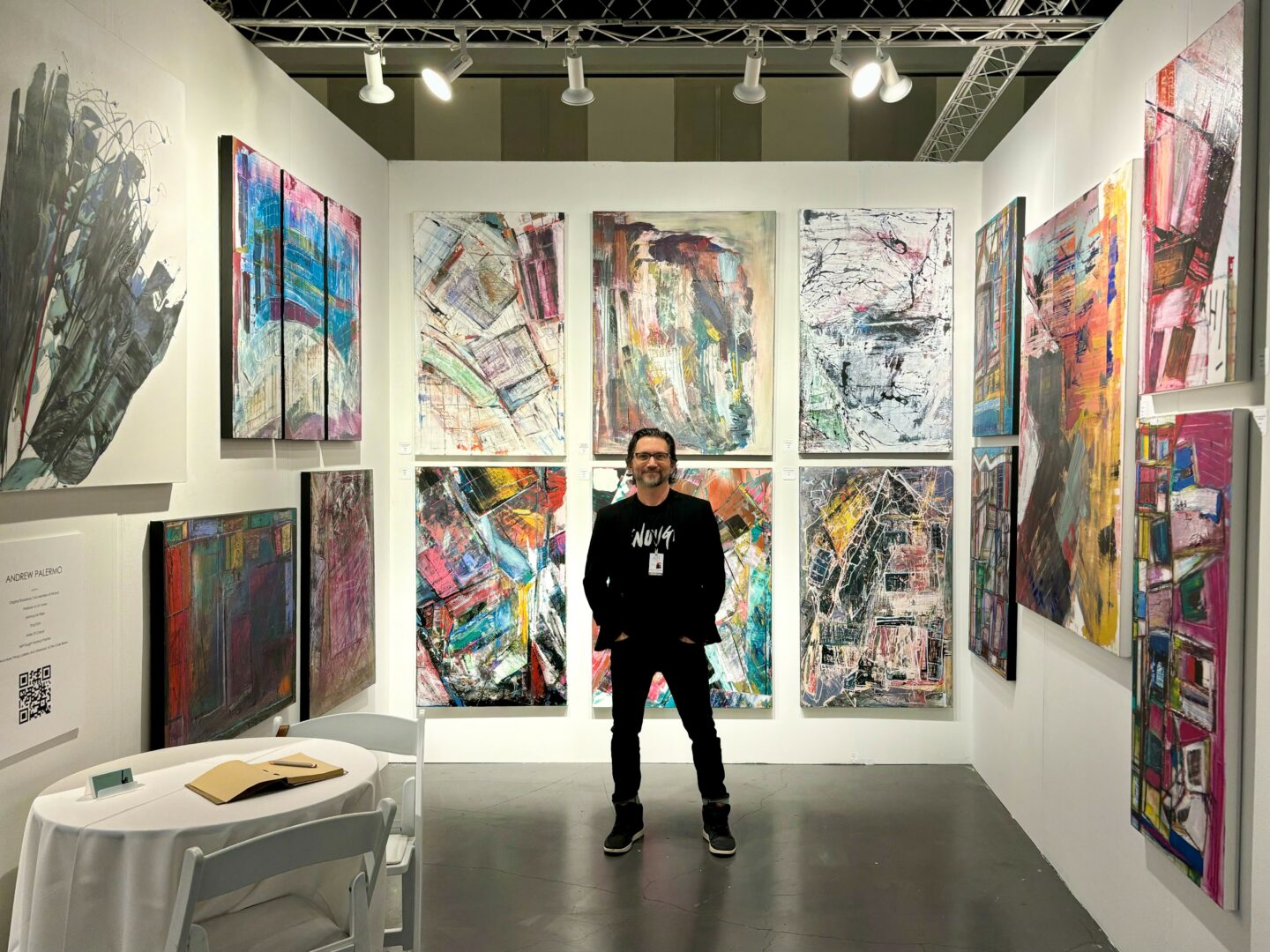
Let’s take a small detour – maybe you can share a bit about yourself before we dive back into some of the other questions we had for you?
I’ve never been great at staying in one lane. My creative life stretches across directing, choreographing, painting, teaching—none of it really compartmentalized. It all bleeds together, and I like it that way.
Right now, I’m developing a one-woman show with a fiercely talented writer/actress. It’s sharp, emotional—and most importantly, funny. I’m also excited (and a little terrified) to be in the early stages of developing a large-scale musical that promises to use all of me—and then some. Not sure if I’m ready for it but, as they say, ready or not…
Visual art has become a steady and grounding part of my creative life. I try to get into the studio most days—not always because I’m feeling wildly inspired, but because consistency shapes voice. Some days the work flows, some days it doesn’t, but showing up has taught me as much as any finished piece.
Outside of performance work, I’m Co-Principal Investigator on a pilot study at University of California, Irvine exploring how sleep impacts motor memory. It’s a strange and fascinating collaboration between science and movement, and I’m all in. I’m also continuing my work with Creatively Able, my movement therapy approach that uses dance and creative play with individuals with special needs. That work is raw, joyful, and endlessly grounding.
This fall marks my 13th year as a Professor of Drama at UCI. I learn just as much from my students as they (hopefully) do from me. Being a mentor sharpens my perspective and makes me a better artist—and a better human.
What ties it all together isn’t some grand artistic thesis. It’s just that I follow what lights me up.
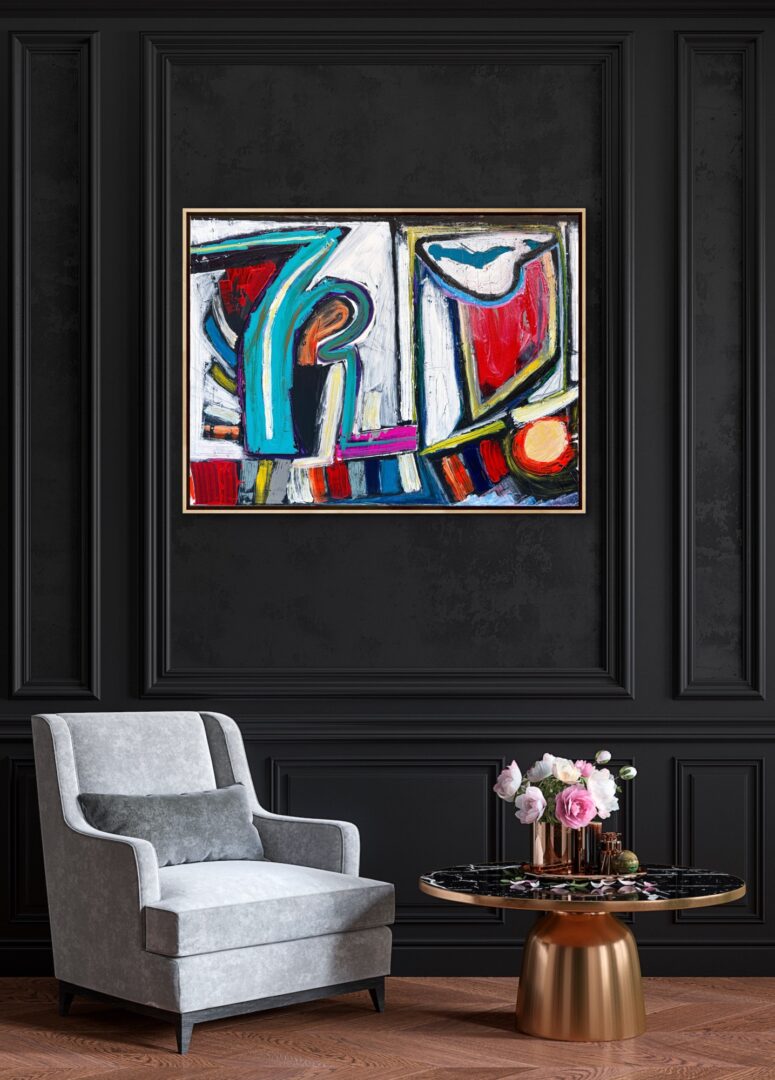
Looking back, what do you think were the three qualities, skills, or areas of knowledge that were most impactful in your journey? What advice do you have for folks who are early in their journey in terms of how they can best develop or improve on these?
Looking back, one of my biggest throughlines has been the willingness—or maybe the compulsion—to leap before I have all the answers. When I was performing on Broadway, I left shows without another gig lined up. I co-founded a dance company with zero experience in the concert dance world. I started painting with no formal training. I’ve just always believed that if something’s pulling at me hard enough, I’m supposed to follow it—even if I have no idea what I’m doing. Especially then.
The second thing is that I’ve always had a strong point of view. A blessing and a curse. As a performer, it could get me in trouble—I had opinions, and I didn’t always know how to keep them to myself. That’s part of why I transitioned into directing and choreographing in my early 30s. It turns out that the same point of view that could have made me “difficult” in a cast became a huge asset when I was the one leading the room. I’ve learned to trust that voice—sharpen it, not silence it.
And finally, I think the ability to reinvent has been essential. I’ve lived many creative lives: performer, choreographer, director, writer, painter, professor. Every time I’ve hit a wall or burned out or lost the plot, I’ve found a way to shift gears without walking away from the core of who I am. Reinvention doesn’t mean abandoning yourself—it means finding new ways to stay aligned with your instincts.
For folks starting out, I’d say: be bold, even if you’re terrified. Develop your voice—not just your technique. And don’t be afraid to evolve. You don’t need to be one thing forever. Most of the artists I admire weren’t.
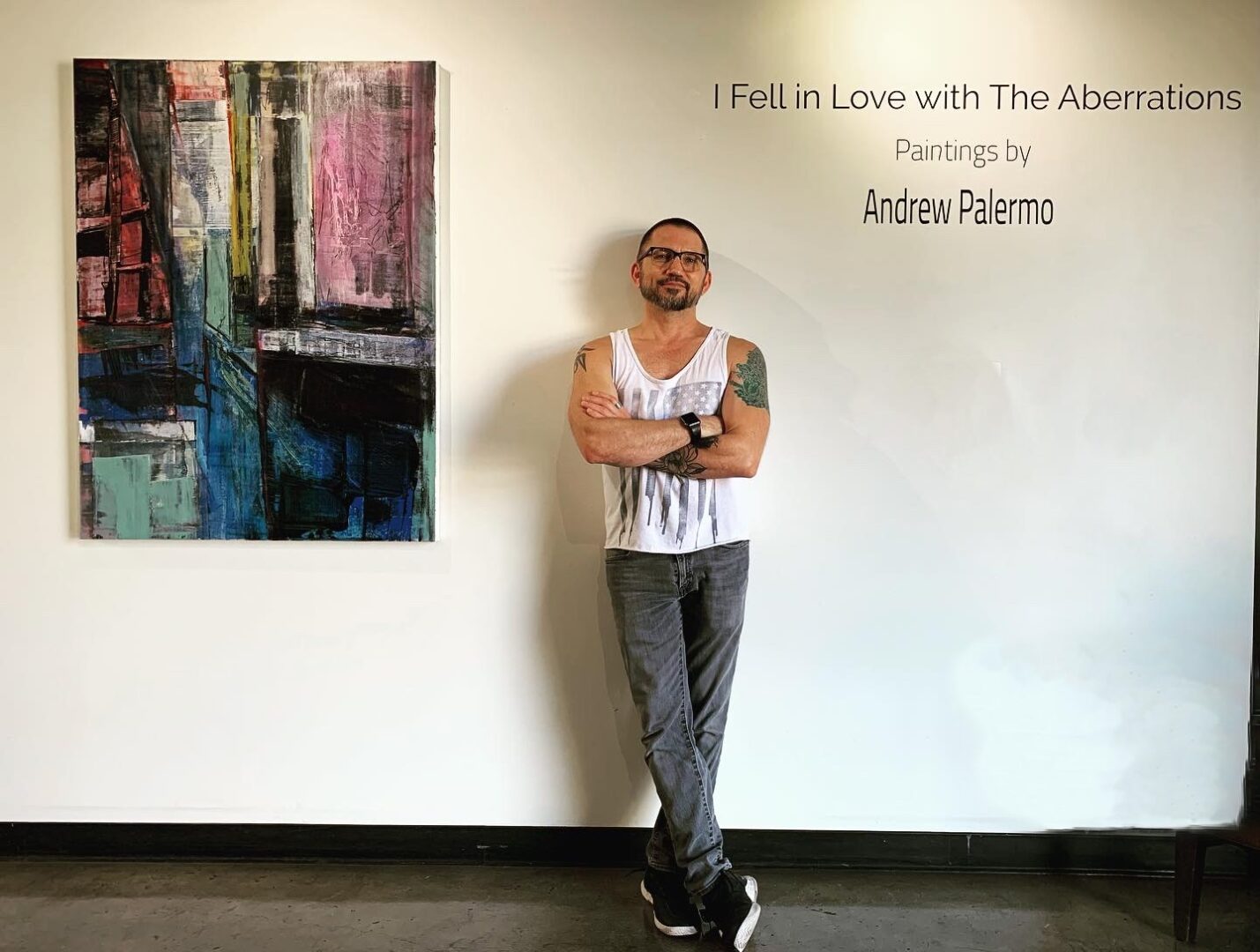
What do you do when you feel overwhelmed? Any advice or strategies?
When I feel overwhelmed, I try to pause instead of push. I’ve learned that powering through usually just leads to exhaustion, not clarity.
One of the most helpful shifts in my life has been adopting the mindset of “Palms Up.” It’s a mantra I carry from my (imperfect but sincere) Tibetan Buddhist practice. The idea is simple: if you rest with your palms open, people and experiences can land there, stay for a moment, maybe even a long while—but they’re also free to leave. The minute you close your fist around them, your grip tires, the moment sours, and the whole thing becomes a struggle. So I try to stay open. To what is. To what might be. To what leaves.
I also lean—hard—on the people closest to me. That small circle has been vital to my mental health and overall sense of balance. They remind me I don’t have to carry everything alone, and that community, even a small one, is a form of regulation and resistance.
Then there are the day-to-day resets. I paint, even when I don’t want to. I ride my motorcycle, which clears my head faster than most meditation apps ever could. And I spend time with my rescue dogs, Steve and Henry. They’ve seen me through some of the hardest chapters of my life, and they keep me grounded in the now.
Overwhelm isn’t weakness—it’s a signal. And most of the time, that signal is asking for stillness, not more effort. So I breathe. I reach out. I step away. I try to meet it… palms up.
Contact Info:
- Website: http://www.andrewpalermo.com
- Instagram: HTTP://www.instagram.com/andrew_palermo__
- Facebook: https://www.facebook.com/andrew.palermo.125/
- Linkedin: https://www.linkedin.com/in/andrew-palermo-a4a3b86
- Other: Http://www.creativelyable.com
Http://www.nickelminesmusical.com
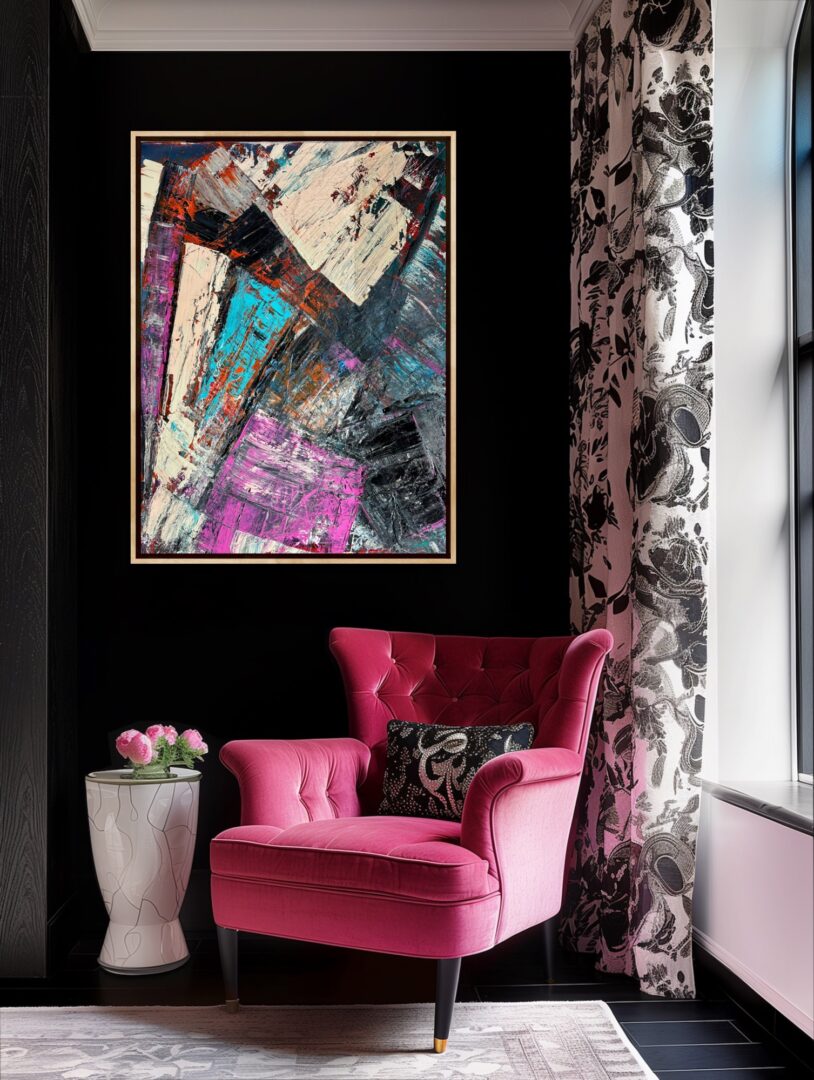
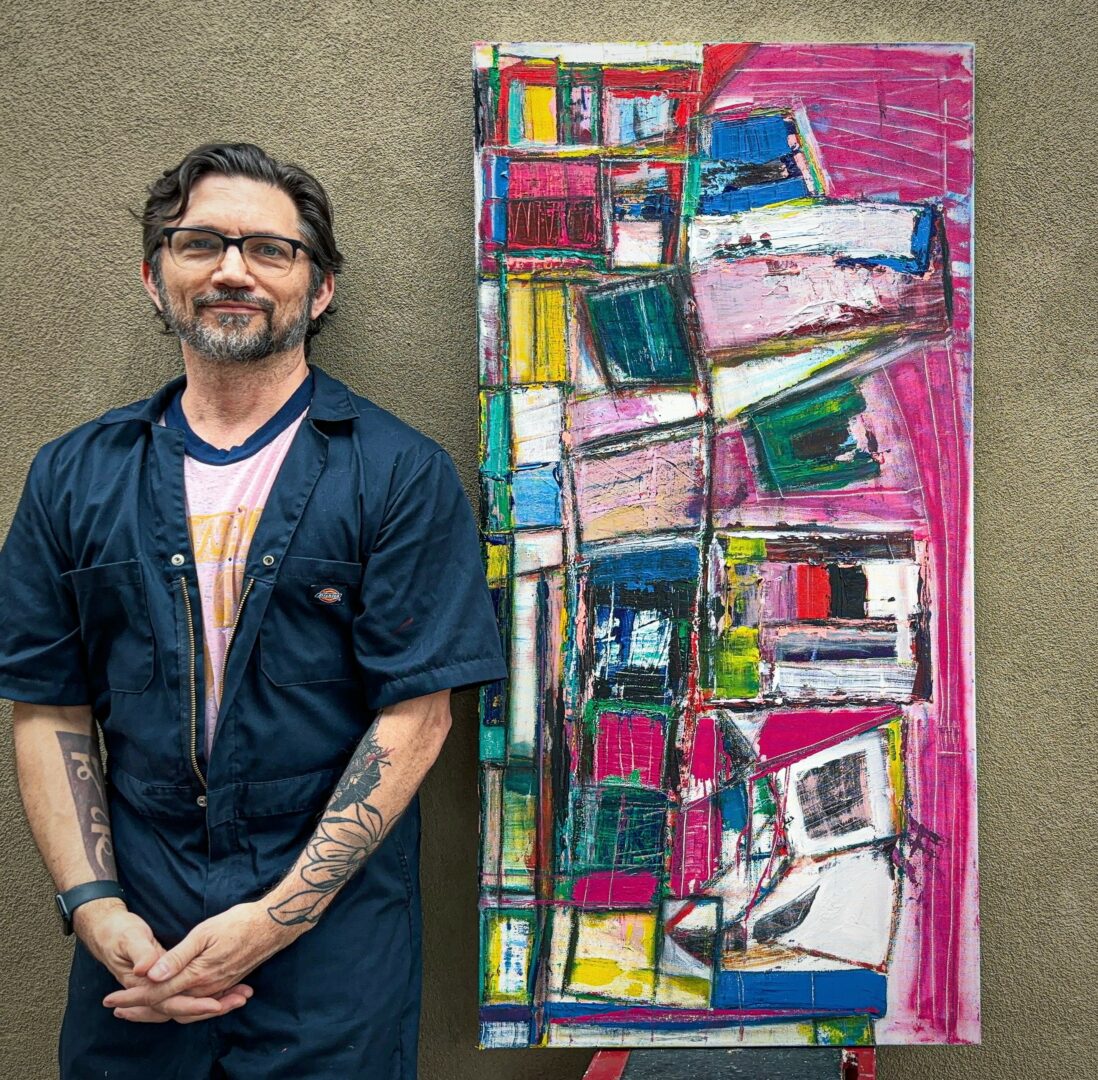
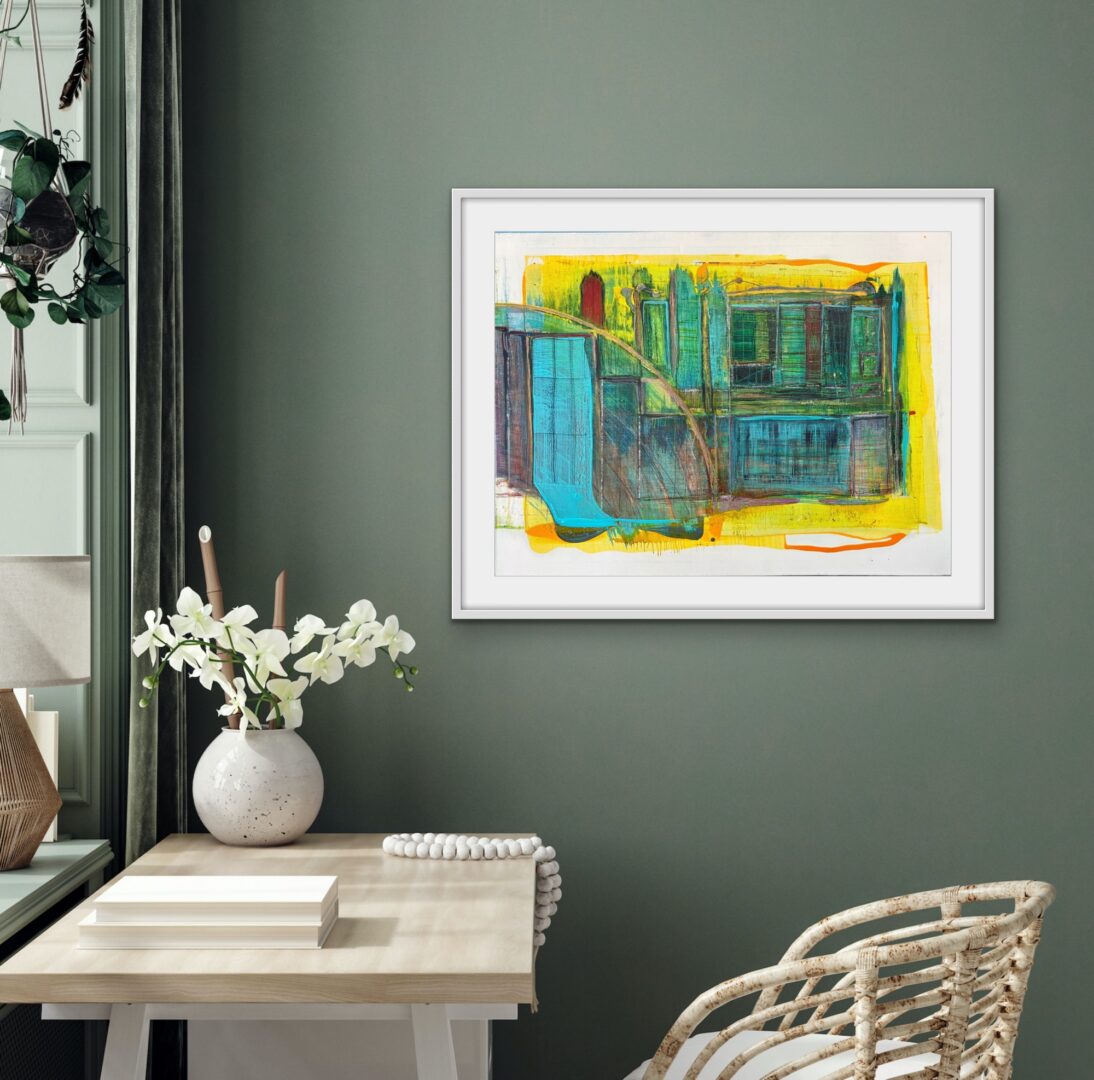
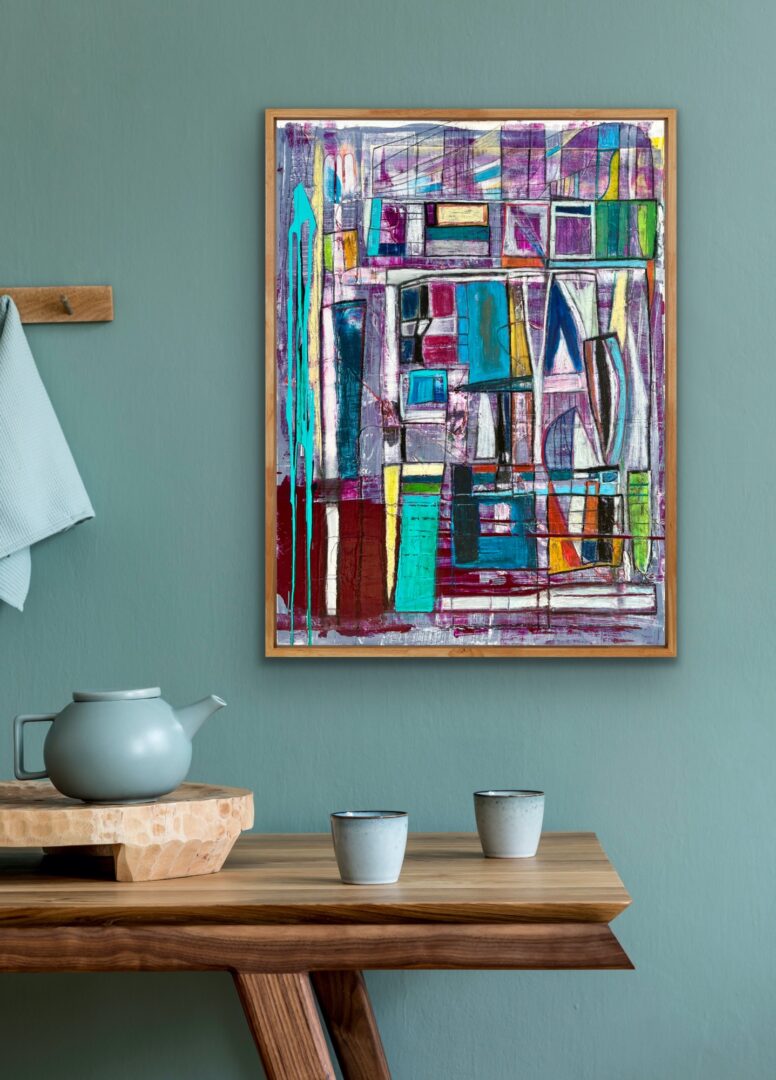
Image Credits
Lee Cherry (for lead pic)
so if you or someone you know deserves recognition please let us know here.

